FORT HUACHUCA, Ariz.--Whether you live with Fido, Felix or Fluffy, you probably consider your pet a family member. Because they're part of your family, you most likely want to ensure they're receiving the best care and treatment possible.
According to Capt. Dustin Staab, Fort Huachuca's Veterinarian Corps officer, there are a number of vaccinations pets require, including rabies, distemper and Leptospirosis.
Pets should receive an initial rabies shot, another shot a year later, and after that they should be vaccinated every three years. They should be given a distemper shot every three years, and a Leptospirosis shot annually.
According to the Center for Disease Control, Leptospirosis is a bacterial disease that affects humans and animals.
Owners should schedule a yearly check-up, around the spring or summertime, up until their dog is 6. After 6, also known as the "geriatric" age, owners should schedule a check-up every six months. Felines, of all ages, should receive a check-up once a year.
Dogs should be tested for heartworm annually and remain on heartworm prevention year-round, especially in Arizona.
"[Heartworm] treatment is a lot worse on the dog and owner than prevention," Staab explains.
He encourages owners to use a flea and tick preventative on their four-legged friends, and says a once-a-month application suffices for pets living in Arizona.
Staab also offers tips for pet owners to keep in mind during cold and warm weather.
Cold weather
Although the weather is warming up during the day, temperatures are still significantly colder at night.
"It's common sense; keep your pets warm," Staab explains.
Staab warns pet owners, specifically ones with cats that are in- and outdoor felines, cold weather can be an issue.
"[Cats] may be able to handle freezing temperatures as long as they're dry, but if it starts raining and then freezes, cold weather can be a problem for them."
He also says people should be aware of cats seeking shelter in the hood of a vehicle. He suggests knocking on the vehicle's hood to give the potential resident a heads-up that the vehicle is about to start.
"As for dogs," Staab says, "it's important to keep them on a leash, especially during snow or sleet because they can lose their scent, making it difficult for them to find their way home."
Owners should wipe off their pup's legs, mainly if they've been romping through snow, because they can get salt and antifreeze on their legs.
"Dogs tend to lick the chemicals off and ingest it. For some reason, dogs really like the taste of antifreeze," he says, "but antifreeze kills, and it kills quickly."
Owners should also be aware of where their domestic companion sleeps because drafty areas are also a cold weather issue.
"You can't leave animals in cars," Staab explains, noting it's a cold and warm weather issue. "In cold weather cars act like refrigerators; in warm weather they act like heaters."
Warm weather
"There are certain things a [pet] has to have: water, shade, shelter and food," Staab says, noting if a pet is kept outdoors during the summer, it needs to have some sort of cover, and if tethered, it should be able to access food, water and shade at all times.
Overheating can be a problem during warm weather, especially with furred animals, Staab explains.
Some signs of overheating include excessive panting and difficulty breathing, increased heart and respiratory rates, excessive drooling and weakness.
If these signs are evident, the animal needs to be cooled down as soon as possible.
"We [cool animals down] the same way we do with people; get them to shade, give them fluids that aren't too cold, and put ice packs on them until you can get them to a veterinarian for a thorough evaluation," Staab says.
Also, to avoid overheating, don't over-exercise your pet, and if possible give your dog a summer haircut. Staab says to leave an inch of fur, which will protect your dog from the sun.
Owners should also be conscious when leaving a pet in a vehicle unattended.
"It's a criminal offense, and if they feel the animal is in danger, police have the right to break into your vehicle if your animal is left alone," Staab explains, noting this rule applies to all weather conditions.
When it comes to water, owners, especially pooch's parents, should be mindful that not every dog can swim well.
"[Owners] need to be careful around pools and lakes," Staab notes and suggests fitting your dog with a personal flotation device when taking it on a boat.
"It's also important to rinse your pet off after they've been in a lake or pool because they get chlorine or bacteria on them and lick it off, and that's bad for their systems," he adds.
It's important to dry your pet's ears after they have been exposed to water, and Staab recommends periodical ear cleaning with a cotton ball or gauze. Avoid using a Q-tip because that can damage their ears.
Beware of hot cement and asphalt.
"Since [pets] are [shorter] we sometimes don't [realize] how hot it is an extra four feet closer to the ground," Staab says. Also, because they have more hair than humans, their body temperature rises more quickly.
One last tip from the doctor is a long-standing rule; "I know it's hard to resist, but [pets] don't need people food," Staab says.
Some foods, in particular, to avoid are chocolate, raisins, grapes, onions, and anything that's sweetened with xylitol.
Pet owners permitted to use Fort Huachuca's veterinary clinic include active duty servicemembers, Reserves, Guard, retirees and dependants. The clinic is open Monday - Thursday, 8 a.m. until noon, and 1-3 p.m. It is located at the corner of Hungerford and Clarkson.
For more information or to make an appointment, call 533-2767.
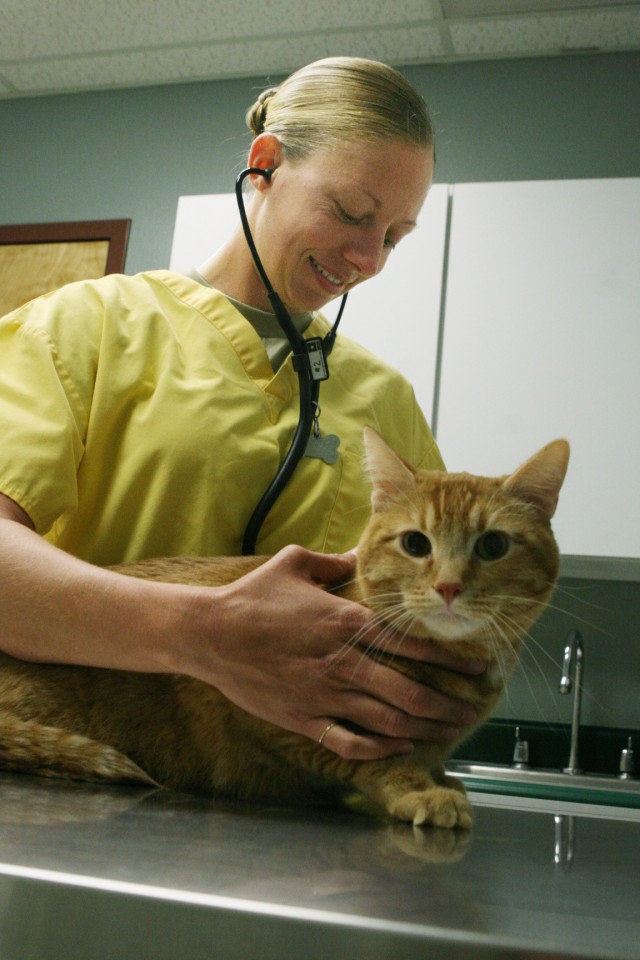
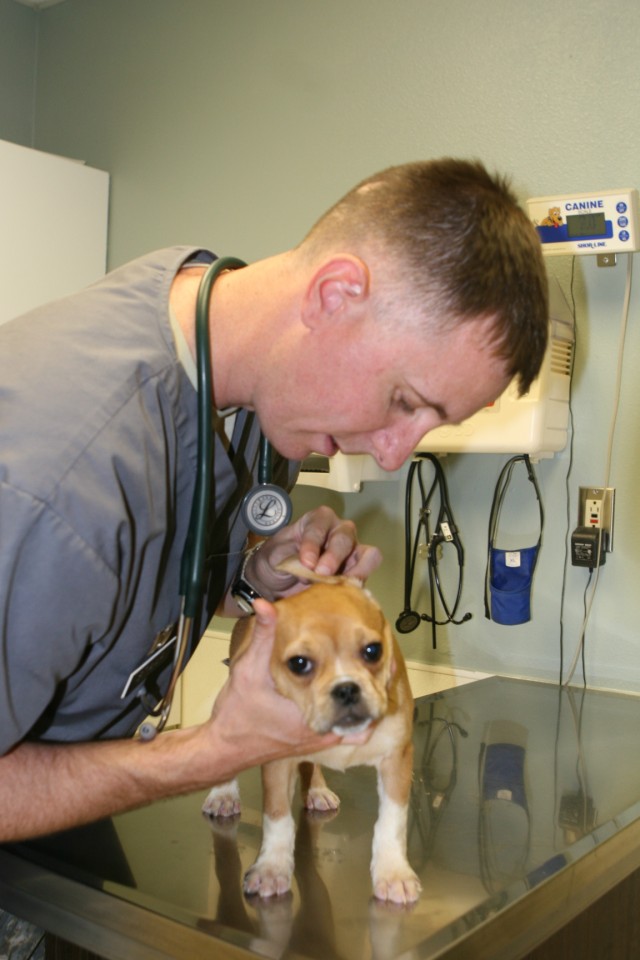
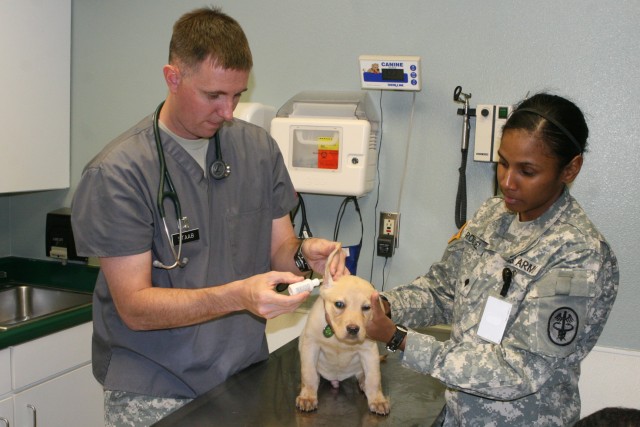
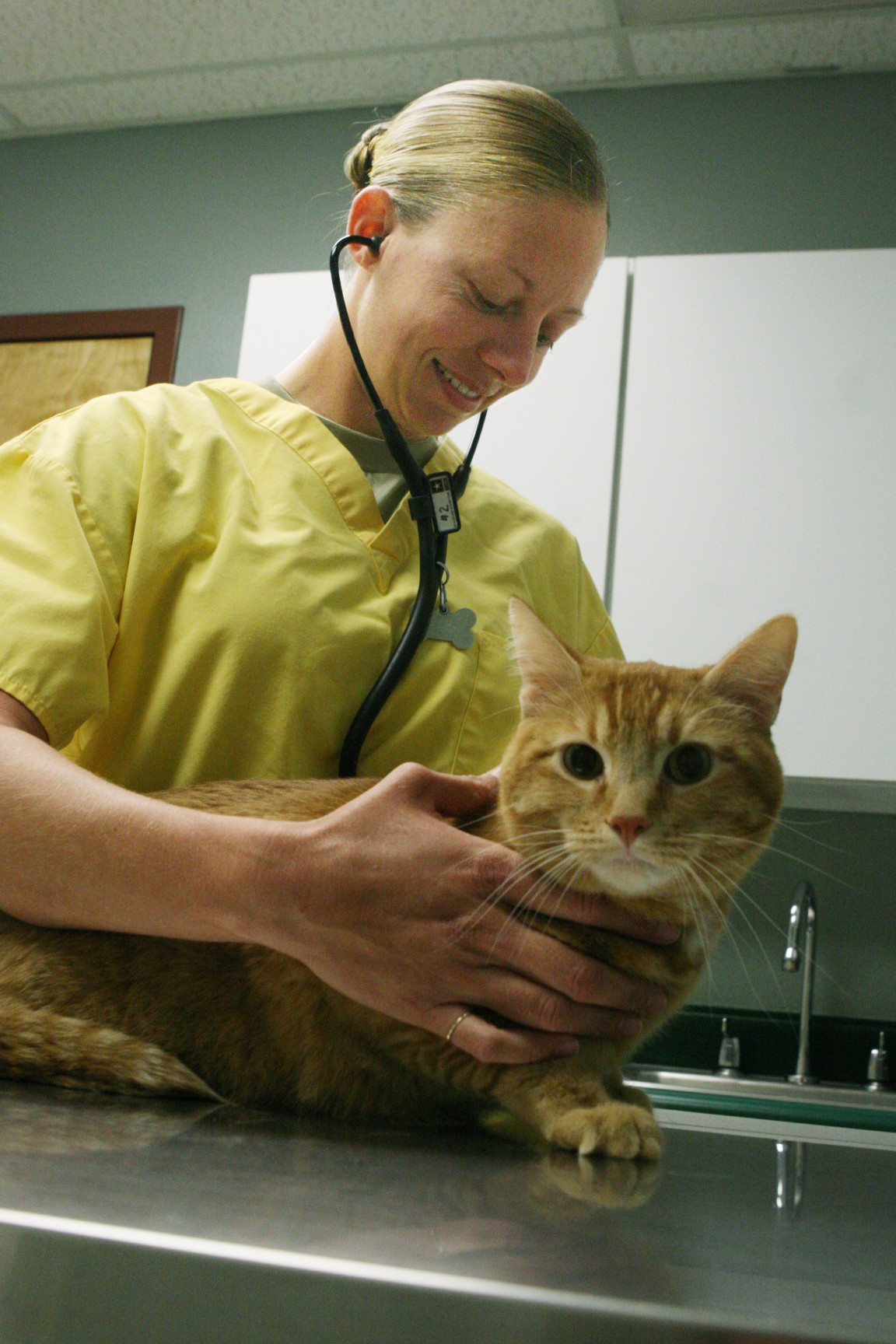
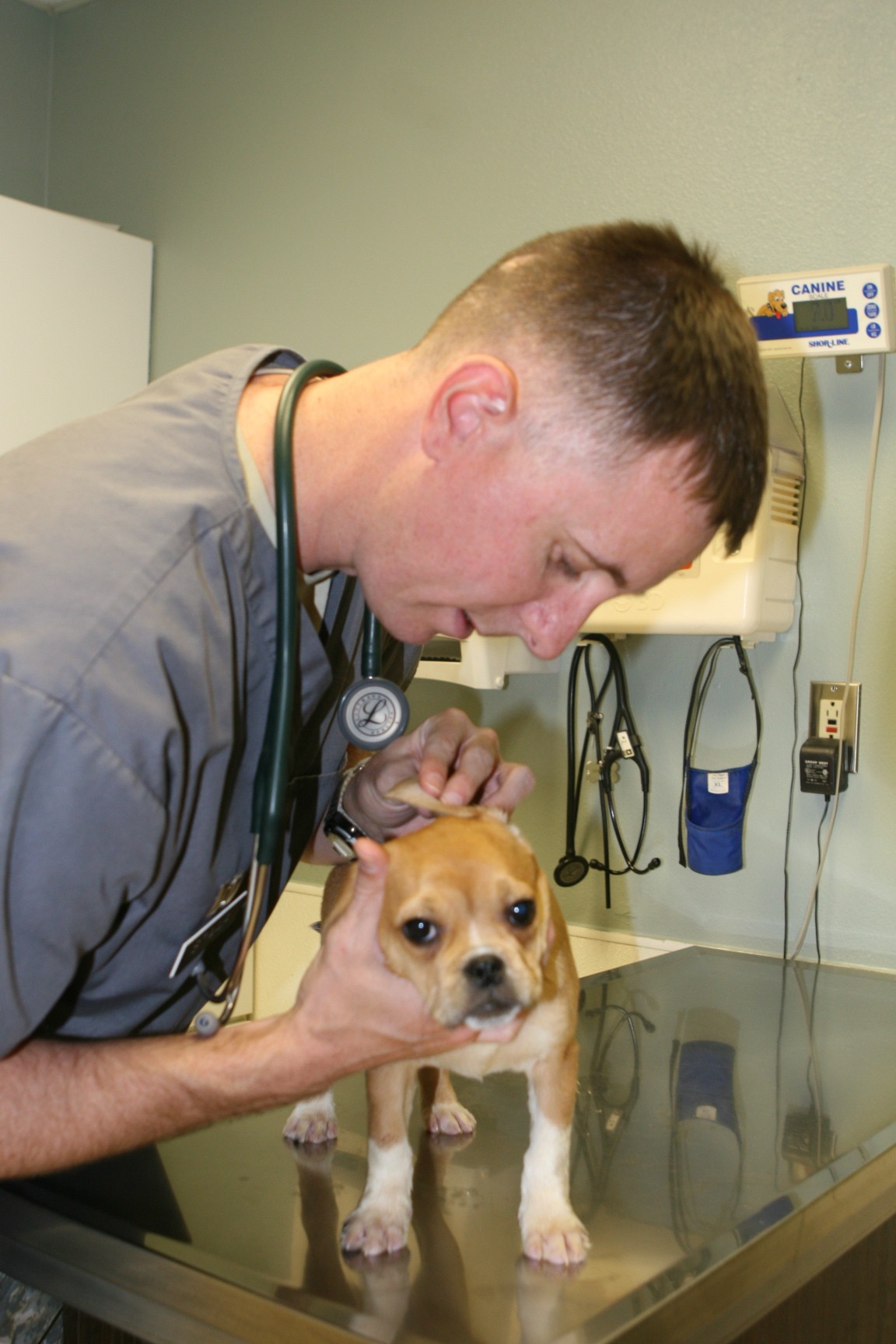
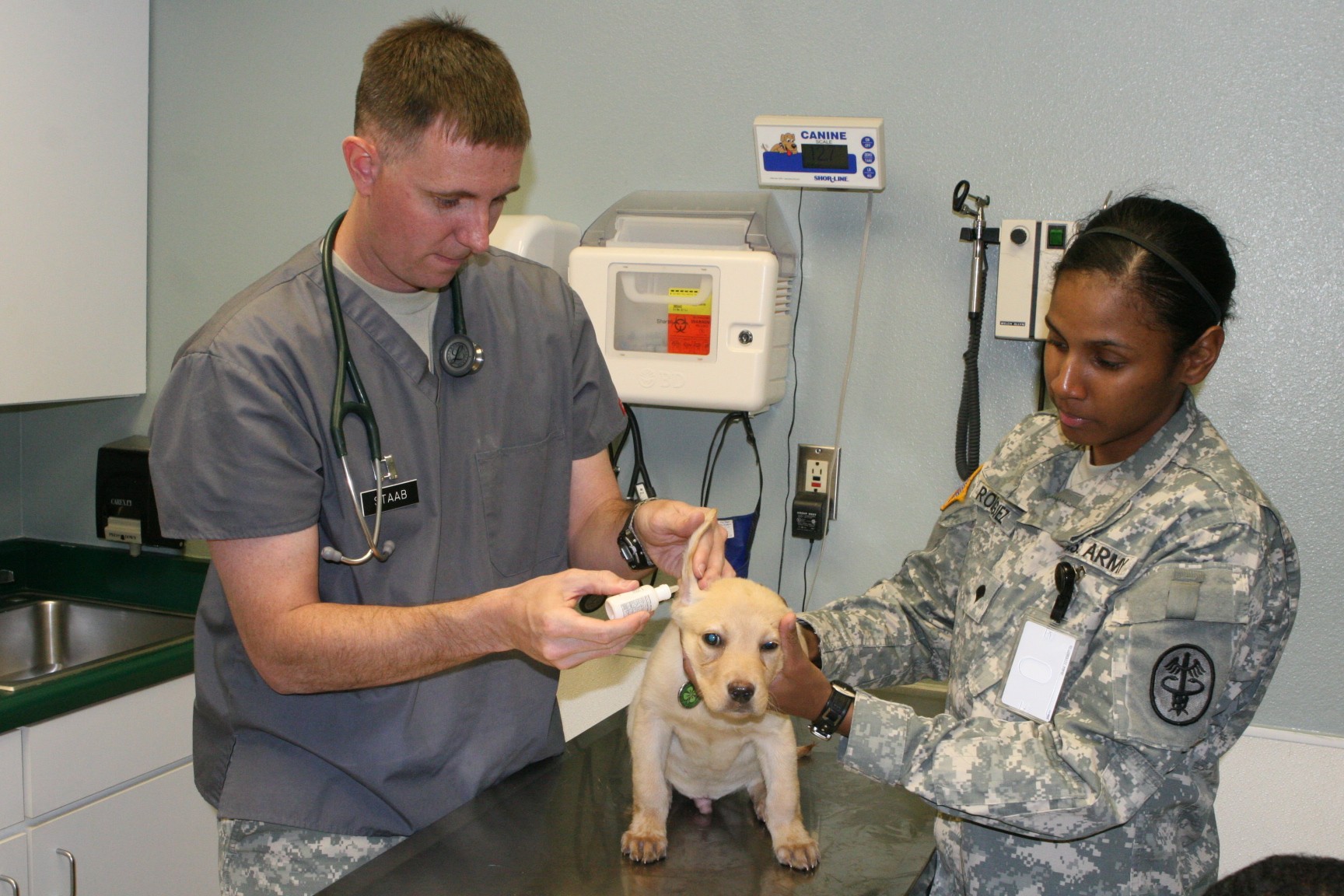
Social Sharing